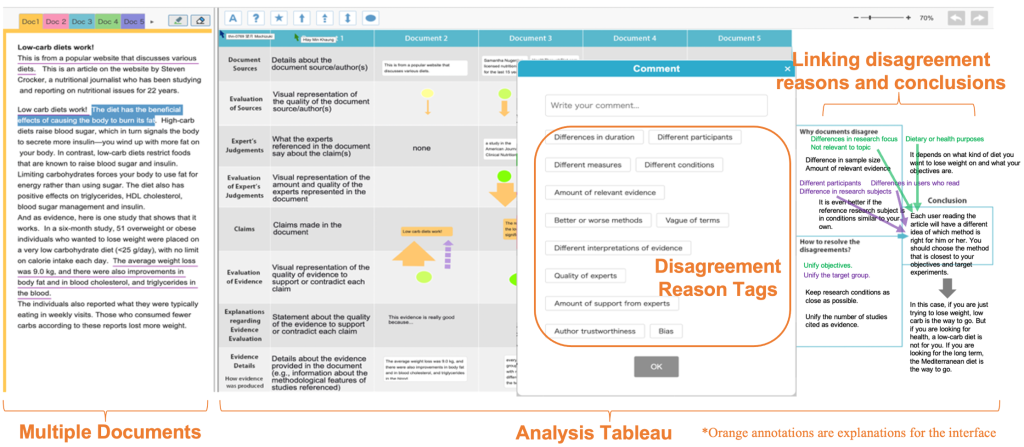Electronic Documents Disagreements Evaluation

Citizens in the 21st century access a wide range of digital information to deal with issues that matter to them in their daily lives, such as whether to get vaccines or which diets or medical treatments are safe and effective.
However, Conflicting viewpoints and information are pervasive on the Internet. Citizens find it challenging to get reasonable ideas or conclusions due to the profusely conflicting information they encounter—from reliable as well as unreliable sources (Kienhues, et al., 2017).
EDDiE (Electronic Documents Disagreements Evaluation) is a computer-supported collaborative learning (CSCL) system that allows several learners to read, discuss, and analyze a set of documents, even if the learners are far apart.
EDDiE helps learners weigh and integrate information from multiple documents on the Internet and beyond when they are engaged in inquiry to find out answers to their questions about issues. In other words, when learners want to do research on any issue on the Internet, EDDiE can support them in developing and using effective ways of evaluating, weighing, organizing, and integrating information from multiple, often conflicting sources of information. The goal is to help learners develop better ways to reason about multiple documents.
The application enables learners to create a visual representation on a tableau to compare and contrast information from multiple conflicting documents. The tableau incorporates scaffolds that support learners as they identify and evaluate sources, the views of experts, and evidence that bears on an issue. Additional scaffolds help students identify and resolve disagreements among the documents to reach sound conclusions.
EDDiE is designed to help students learn to reason well about conflicting viewpoints and information, which are pervasive in the so-called “post-truth” digital world.
